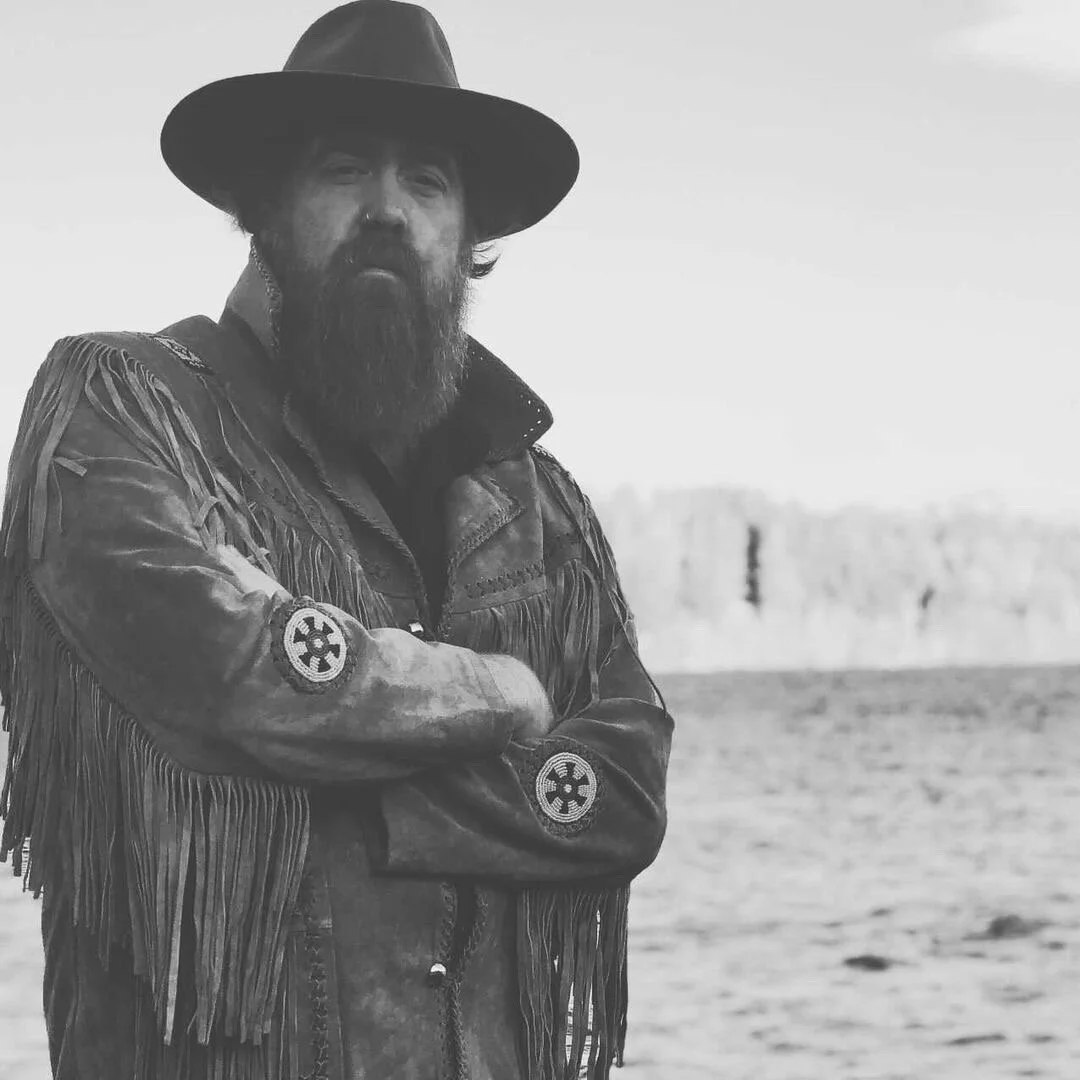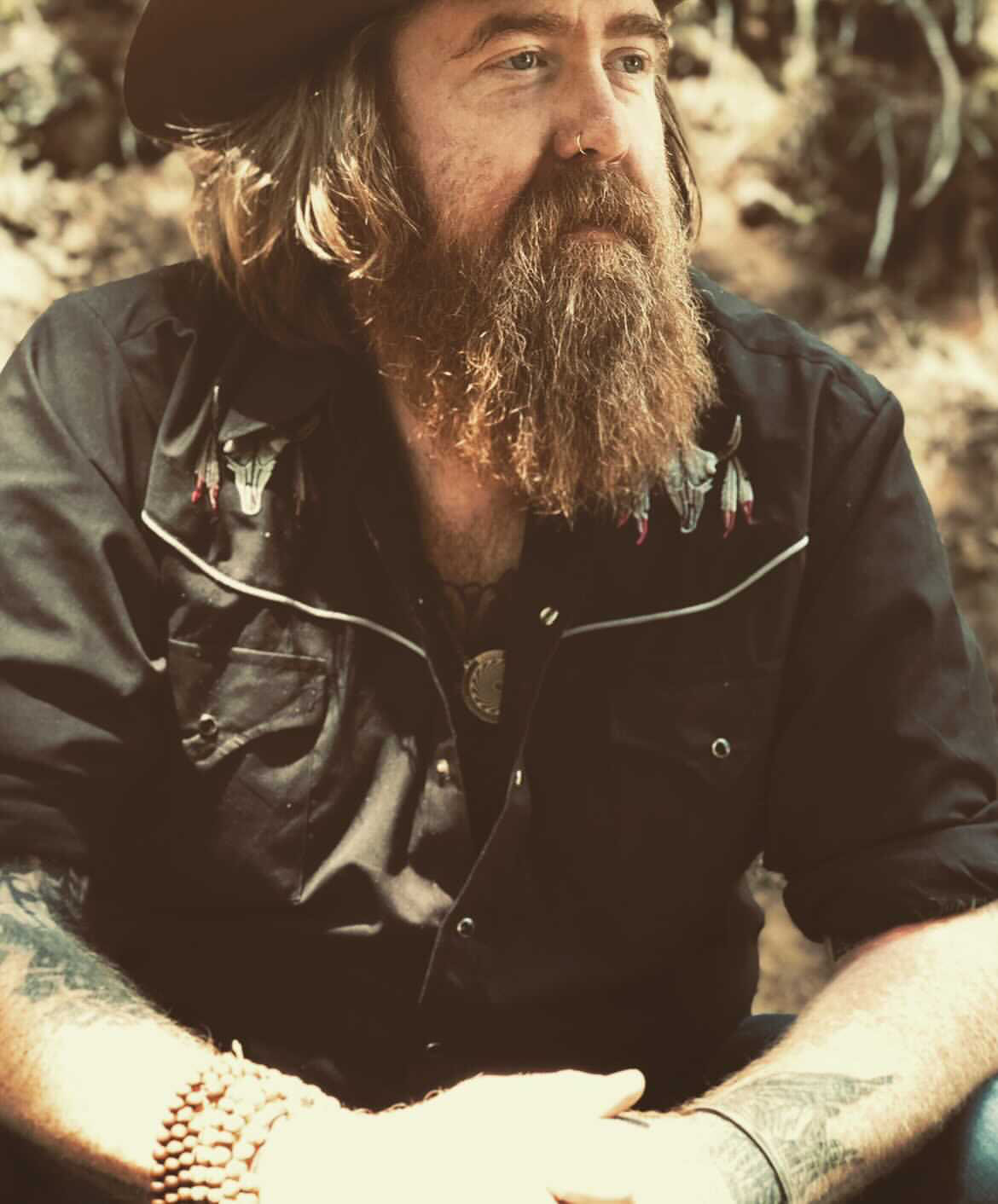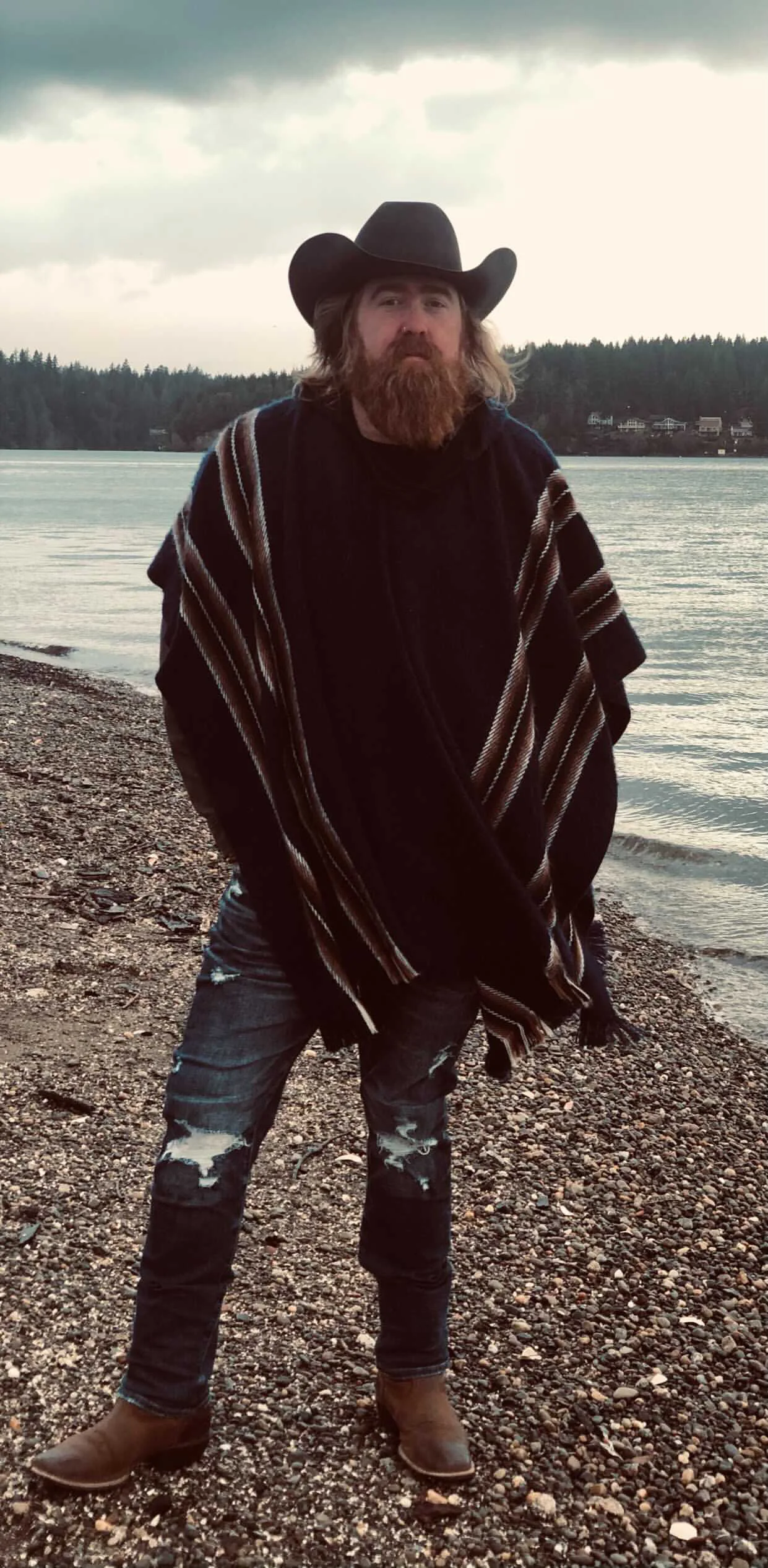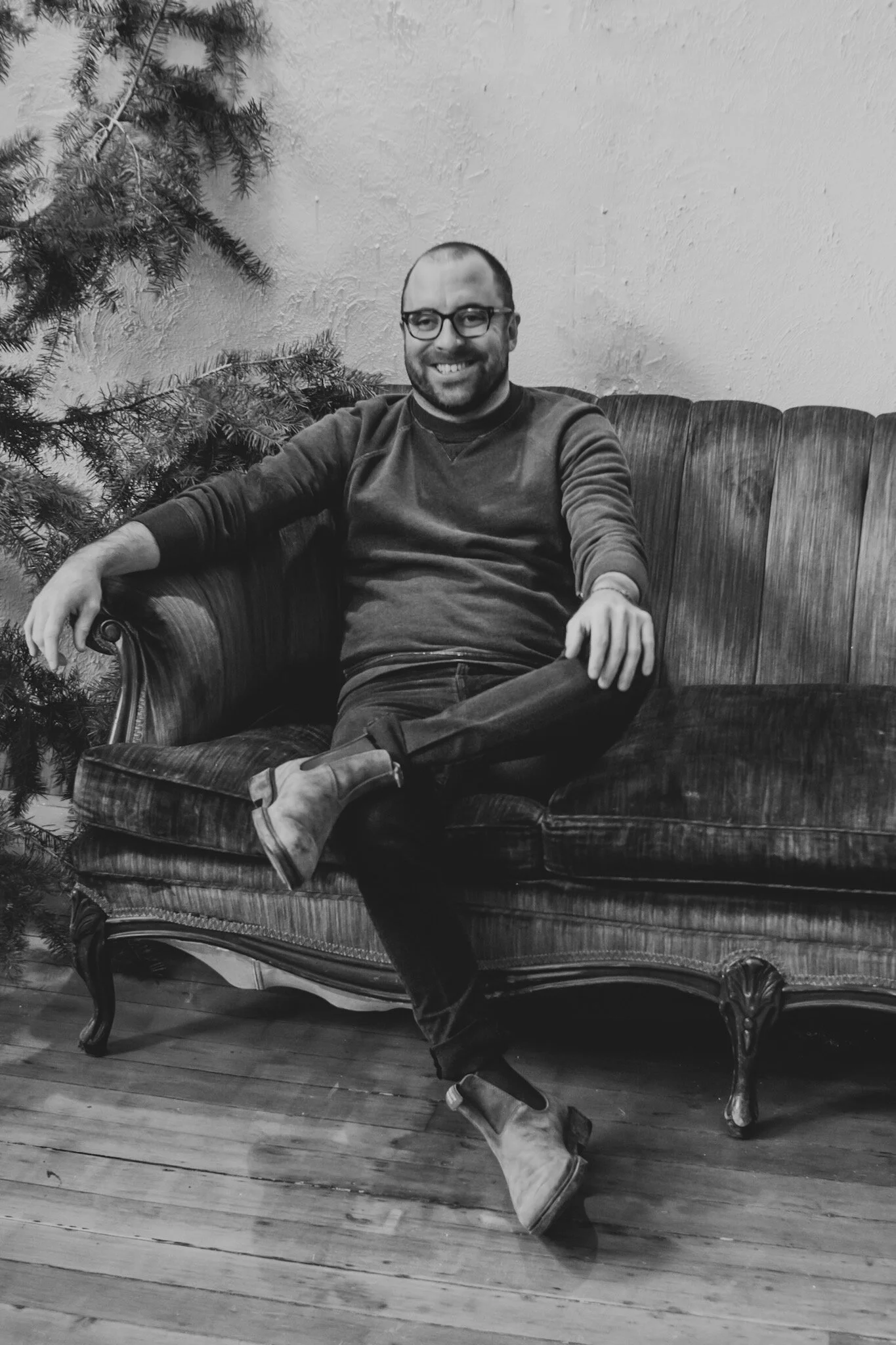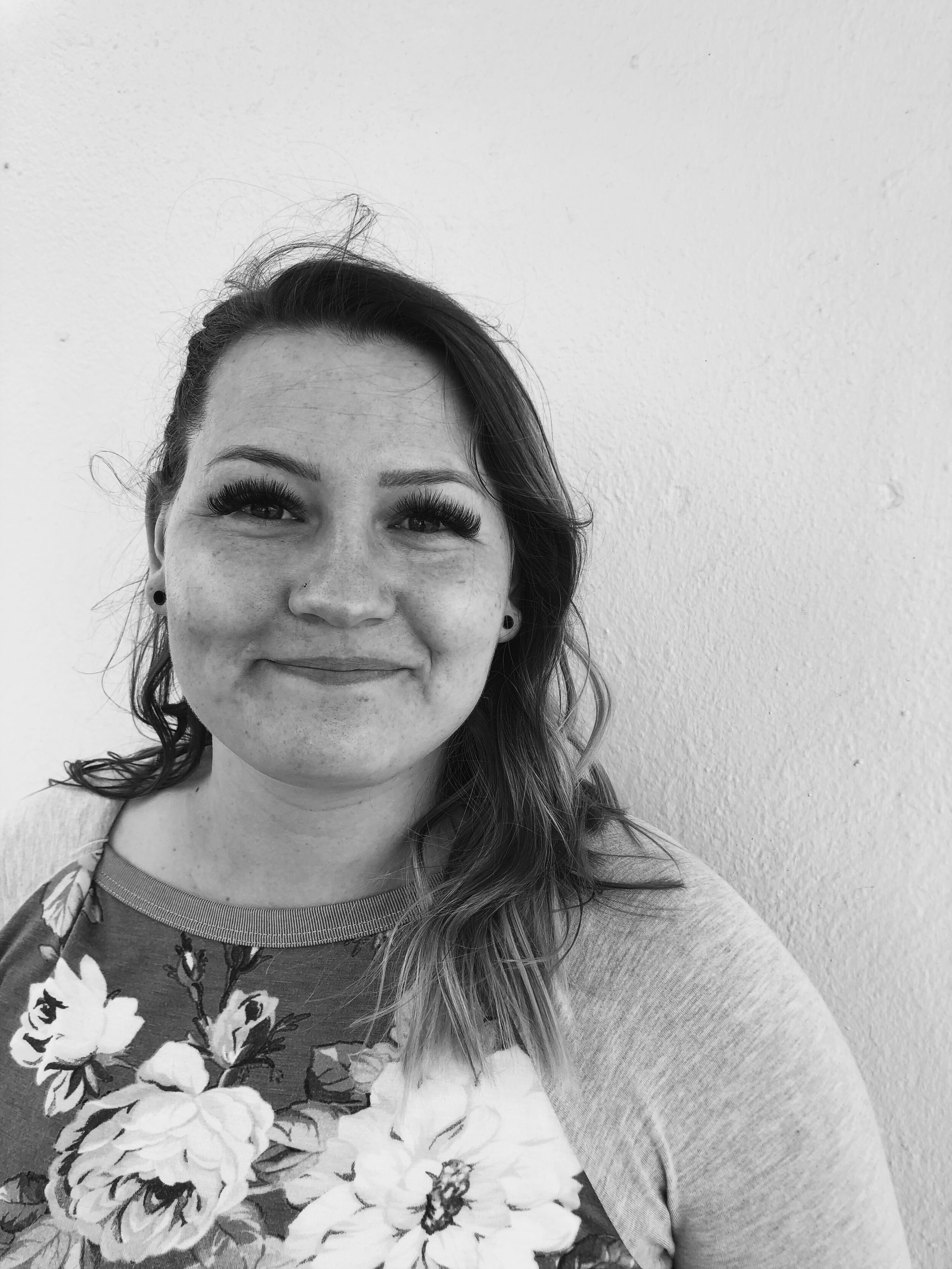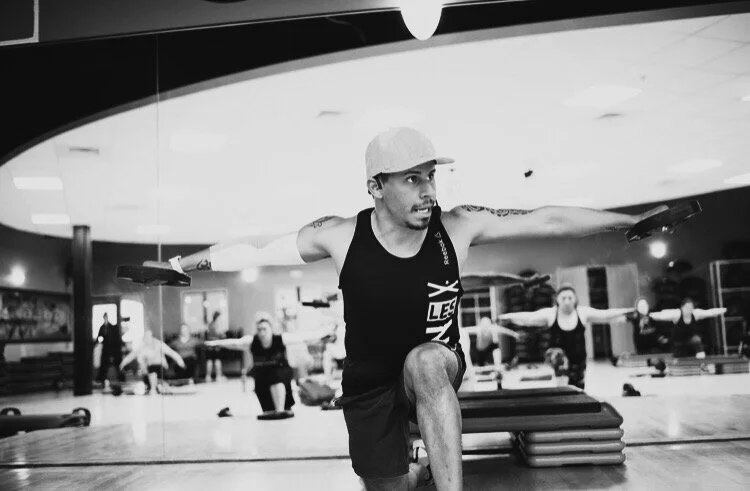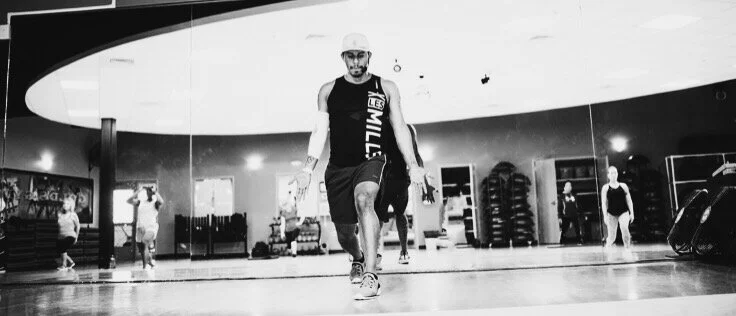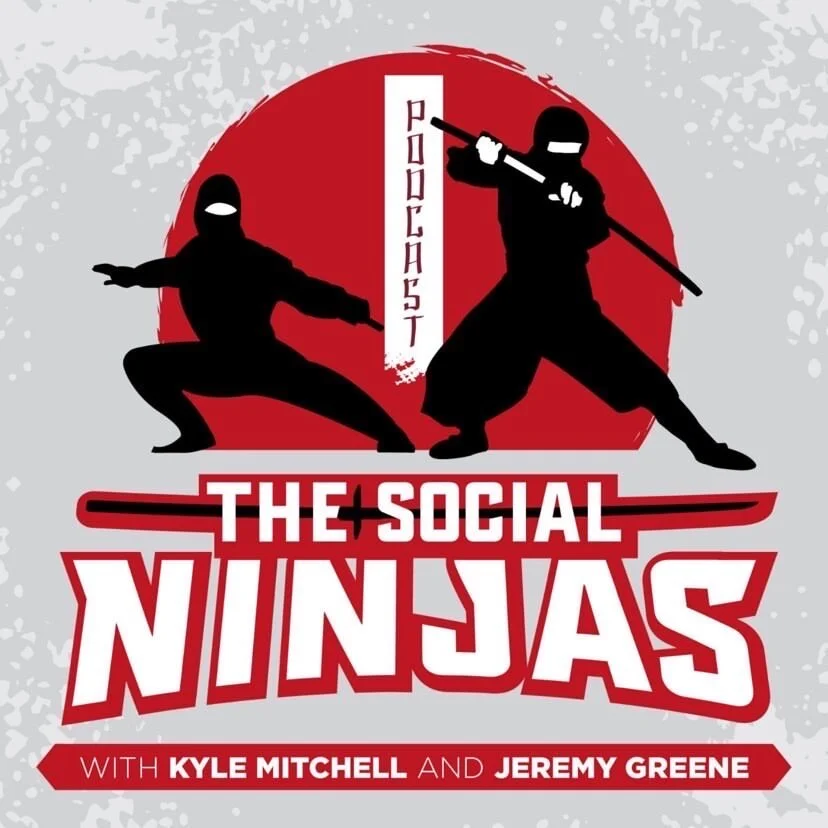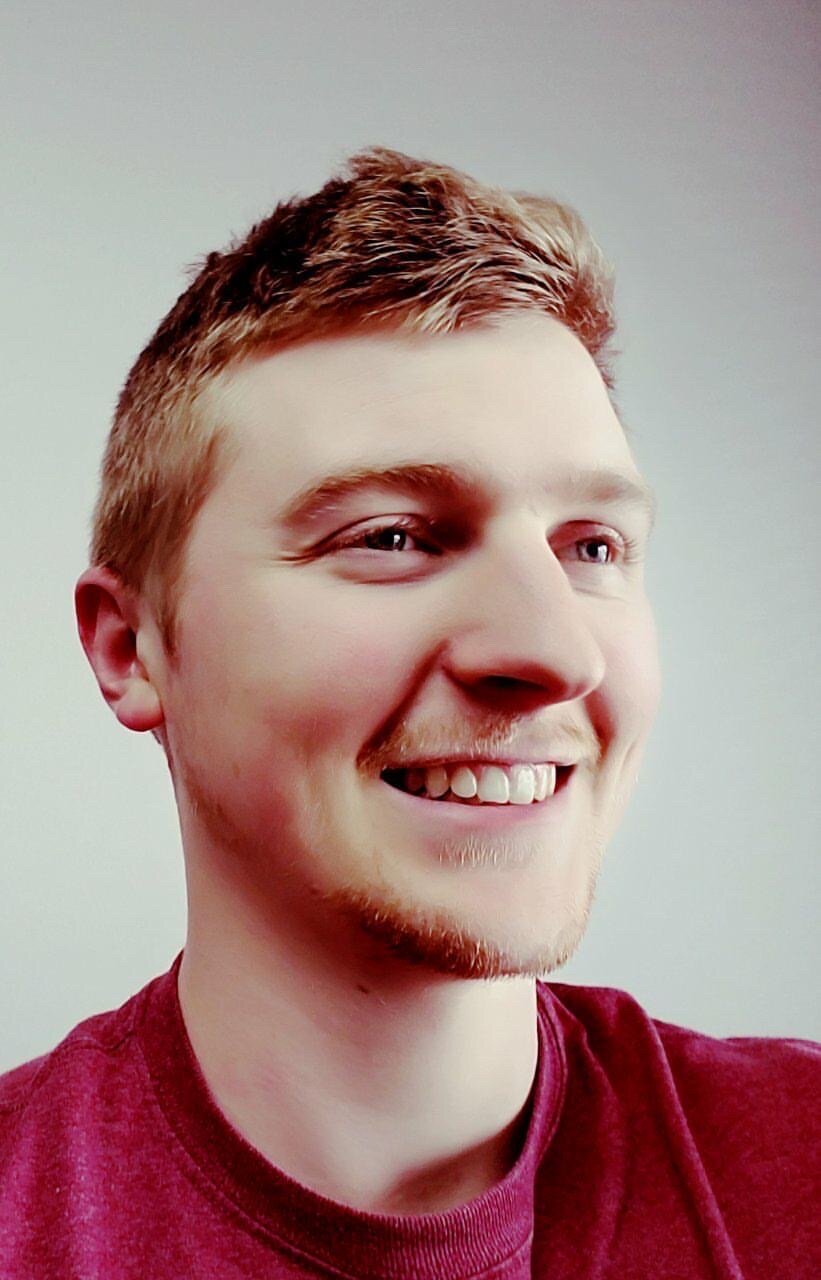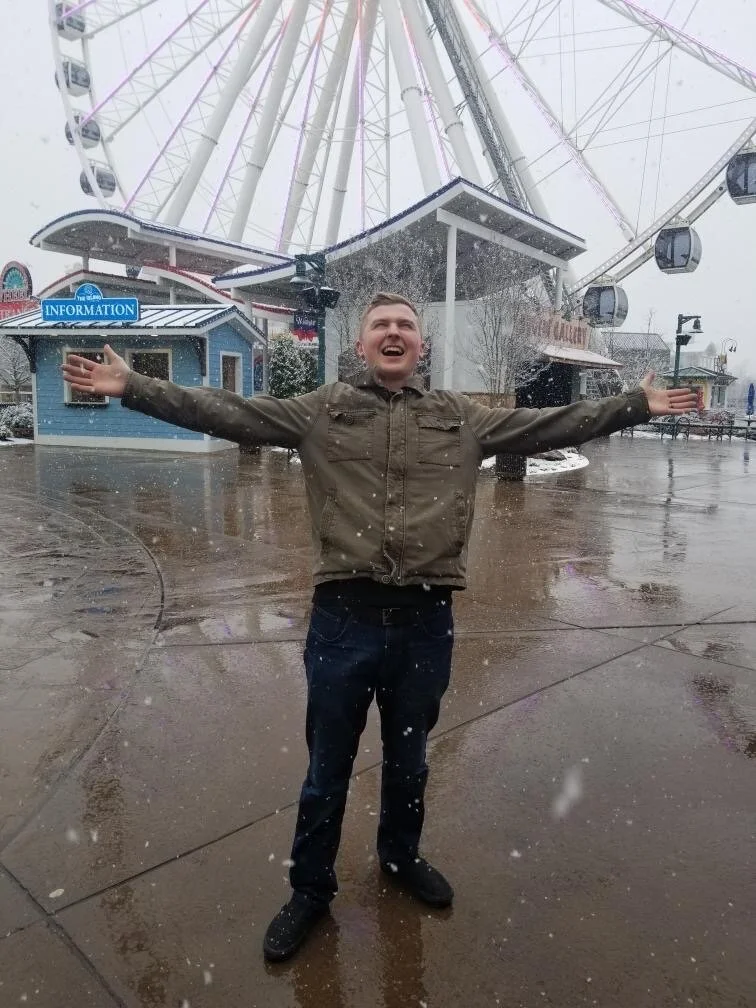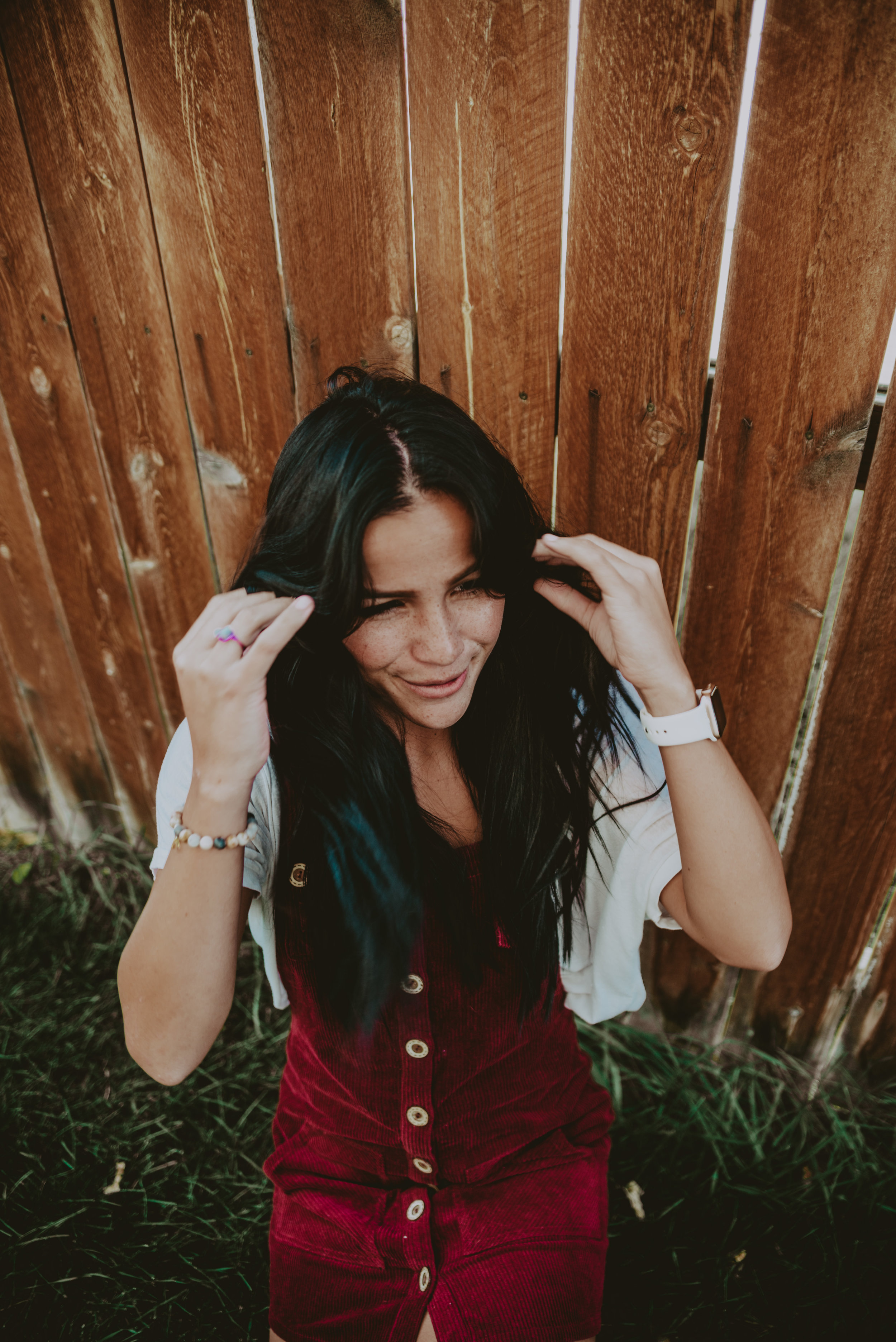Addiction Series Part 4: Ally Not Enabler
Another hard-hitting and stellar conversation in my ongoing series on addiction.
Today’s guest is Hallie Hanohano-Erickson, who shares her perspective of a loved one watching her brother and “brother-in-law” experience drug addiction.
Hallie candidly speaks on her emotional evolution, and what she did to help her process and understand the experience. Hallie highlights signs to look for, and realizations to keep in mind. Hallie remarks on how she would have responded differently, knowing what she knows now, and what she’s learned during the journey, such as how to be an ally, not an enabler.
The podcast Hallie references is Last Day by Stephanie Wittels Wachs. The podcast I reference is Armchair Expert, particularly Episode 87 with Johann Hari from March 14, 2019 (exactly two years ago!).
Please excuse the inexplicable “swamp monster” sound you occasionally hear in the background. We tried identifying the cause, but no such luck. If you power through, it’s totally worth it.
Love you.
Thank you for listening and caring.
Addiction Series Part 3: My Dad Was an Alcoholic
The series on addiction continues. In this episode, my long-time amiga Nicholia speaks on addiction in general and alcoholism in particular. Not only has Nicholia specifically taught on the subject to her high school students, but she also personally experienced it in her home growing up (and into adulthood).
Nicholia shares her experience of having an alcoholic parent, and how that affected her own parenting. She describes how her mother’s approach to it was especially impactful to Nicholia, as a person and as a mother herself.
She tells us about the scary close call that finally led to her father’s sobriety, after doubting it would ever happen.
We discuss generational trauma and how our current habits (and addictions) impact not only us, but our posterity. We emphasize the importance of digging into the discomfort and facing your demons, to heal and prevent generational and current trauma.
Nicholia gifts us with wisdom and a gorgeous message of hope.
Addiction Series Part 2: Addicted to Porn
In the second installment of my addiction series, our guest shares his experience being addicted to porn. In the first installment, we heard the perspective of a spouse; this time, we hear directly from the addict. Eric Gallup explains what led him to pornography and his unhealthy relationship with it. He discusses what drove him to pornography, and whether or not it reflected his contentment with his partner and marriage. Eric reflects on how he climbed from rock bottom to the happy, healthy, uplifting, grateful person he is today as a life coach. Not only does this episode highlight addiction truths, but life lessons as well.
You can follow Eric Gallup on Facebook. On there, he also has his Curative Coaching page if you’d like to hire him as your life coach.
Addiction Series Part 1: My Spouse Was Addicted to Porn
This series has been a desire of mine for awhile now.
Though widespread, addiction is still stigmatized, hushed, shamed, and (I feel) generally misunderstood.
But it affects all of us (whether you realize it or not) directly and indirectly. So let’s talk about it.
Dr. Gabor Maté, MD, is known for his unique perspective on addiction, child development and trauma, and how this stress manifests in the body, and he has written several related books. While on The Goop Podcast (episode from 3/26/2019 titled How Does Childhood Stress Manifest in Adulthood?), Dr. Maté provided a nutshell definition:
”Addiction is manifested in any behavior in which a person finds temporary relief and pleasure and therefore craves, but suffers negative consequences as a result of, and cannot give up despite negative consequences.”
It could be addiction to pornography, sex, food, relationships, video gaming…or even to work and profit.
Dr. Maté notes when he gives this talk to any group of 800-1000 people and asks how many present by that definition have an addiction, virtually everyone will raise their hand.
Wow. Think about that.
Most of us are addicted to something (whether we realize/acknowledge it or not).
Dr. Maté continues on to remark on how we judge those with addictions of which we don’t approve. We’ve arbitrarily decided which addictions are respectable and which are not. For example: We judge heroin addicts more than cigarette smokers, which is interesting because from a health standpoint, cigarettes are worse for you than heroin (unless you overdose on heroin).
There are multiple manifestations, experiences, and contributing factors regarding addiction. This series is to normalize this conversation. To offer various perspectives and angles, from addicts and from those who love them. These views/experiences may differ from your own. Good. I hope so.
This is part of The Nativist’s broader purpose of sharing stories and views, to connect to ourselves and others; to nurture empathy and inspire us to look outside our personal experience and perspective, so we may learn, grow, understand, and live more fully.
In this episode, Reagan Garrett candidly shares her story of having a spouse addicted to porn. As a new mom and wife at the tender age of 17, Reagan tells us how she discovered the addiction, and what she did with that information. She speaks on her initial and subsequent reactions, her thoughts, her coping methods, her recommendations, and her current views on the matter.
She inspires me.
(Please excuse the poor audio quality on this episode. It’s worth it.)
If you’d like to connect with Reagan to share/relate to your own experience, you may find her on Instagram @reagang_
THANK YOU for caring. This matters.
As You Please
This is one of those conversations that could completely transform how you view and live life. How you show up in the world. How you FEEL.
I’m not exaggerating. This is a deep, profound, and universally relevant topic that I’ve felt increasingly pulled to explore - both on here and in my own life. This matters. It affects our relationships, our body image, our self esteem, our interactions, our life experiences. It affects everything and everyone.
And if you start listening and feel unsettled…that’s a key message in itself, something to unpack and examine. I encourage you to honor yourself and your needs, while also encouraging you to open your mind and expand past any possible fear or shame.
This actually covers a variety of significant topics to which we can almost all relate, and it was a true pleasure to tackle it with the wise and radiant Rachel Klein. In addition to the main discussion, Rachel offers her thoughts and journey on aligned and embodied living. She shares how personal tragedy fully awakened her to the fragility of life, inspiring her to quit a corporate job and move west.
This episode has the power to revolutionize your relationships - with yourself and others.
NOTE: This content is intended for mature audiences.
If you’re interested in following/working with Rachel, you can connect with her on Instagram: @mssweetpea
Resources mentioned:
True Sex and Wild Love podcast
Exploring the Limits
This episode is for you if you’ve ever felt stuck/burned out/uninspired/aimless/ambivalent/disillusioned/stifled/checked out/craving meaning. And/or if you’re into having your mind blown, world expanded, thought provoked, and soul validated.
In this episode, Rainier Wylde and I discuss…life.
My default facial expression when reading/listening to Rainier’s words is jaw dropped, eyes widened (listen to this episode and you’ll see why). Social media is saturated with thought leaders, life coaches, advice givers; and while many provide true value, many more (bless their hearts 😬) offer stale, recycled, regurgitated...words. It’s worth noting this is just my perspective, but I have a feeling many of you know exactly what I’m talking about. Rainier is anything but stale, recycled, and regurgitated. He is unique. Drawing wisdom and insight from his innate intelligence, his many lives lived, and his embodied authenticity, Rainier delivers profound wisdom in the most poetic of ways, unlike any other out there. Just peep his Instagram profile/posts and you’ll immediately see. And even better, he’s just really friggin’ chill and fun to talk to. Rainier, it was an honor. 🙏
You can find Rainier:
Instagram: @rainierwylde
Website: www.rainierwylde.com
If you’re interested in working with Rainier, he offers 1x1 coaching, as well as group sessions. And good news! He’s also starting his own podcast!
The Rainer Maria Rilke poem Rainier cites at the end of the episode is the following:
God speaks to each of us as he makes us,
then walks with us silently out of the night.
These are the words we dimly hear:
You, sent out beyond your recall,
go to the limits of your longing.
Embody me.
Flare up like a flame
and make big shadows I can move in.
Let everything happen to you: beauty and terror.
Just keep going. No feeling is final.
Don’t let yourself lose me.
Nearby is the country they call life.
You will know it by its seriousness.
Give me your hand.
Book of Hours, I 59
Thank you.
Trauma Up Close
This episode is for ALL OF US: male, female, young, old - and everyone in between. Trauma does not discriminate. It affects far more than you might know, whether directly or indirectly, and often carries significant shame and stigma. We aim to help dissolve that.
The brave and beautiful Elise Blaser shares her personal story experiencing and healing from sexual assault, and alchemizing it into empathy and insight as a crisis counselor and parent. She is a remarkable human being
Elise and I discuss trauma’s immediate and long-term effects, and how to address them. We cover coping methods - healthy and unhealthy - and trauma’s various manifestations. We note various reasons why victims can doubt - and even unconsciously suppress - their victimhood, and how to recognize it in yourself. We tackle the damaging myths surrounding trauma.
We highlight risk factors and how to mitigate them (key for everyone to know, especially parents and caregivers), and offer resources for preventing and healing from trauma. Knowledge is power.
This is important.
To access the Crisis Text Line Elise mentions in the episode, text HOME to 741741. The Crisis Text Line provides free, 24/7 support via text message, and are there for everything: anxiety, depression, suicide, school.
You can find Elise on Instagram: @eliselilaa where she continually shares insight and resources on various mental health issues: trauma, body image, etc.
Leggo Your Ego
Finally sat down with the man on the move, Charlie Roberts, to chat about life and how he’s lived it.
Charlie has worked with some major names in music and media, and I admire his drive, his commitment, his audacity, his generosity, and his humility. (I personally benefitted from his expertise when he helped me choose new podcasting equipment. He rules.)
We talk about the trip of growing up in a small town, leaving it to pursue work in the big city, and then returning to the small town. We talk about the creative mind and process, and tips for leveraging it. And my personal favorite, we talk about releasing your ego, while working and while interacting with others. Committing to and taking pride in your work, whether you’re sweeping the floor or running the show.
If you’re looking for an easy yet motivating listen, this is it.
You can find Charlie on:
Instagram: @aycharlie
Facebook: @Charlie Roberts
What Self Love REALLY Looks Like
This topic was requested by a follower, with the acknowledgement that it “already is talked about so much, but we need it more than ever.” WORD. That’s exactly right.
Do you ever feel like you’re constantly in the self-love hole? No matter how much self care you do, or mantras you recite, or exhalations you release, you still feel drained? Regularly filled with negativity/doubt/sadness/shame/anger/resentment? If so, this is for you, no matter your age, gender, class, etc.
I cover what true self care looks like, and how guidance on this topic is often incomplete and even misleading.
Though I always keep it real, I get particularly vulnerable with this episode. I share a personal experience, personal enough to prompt the “maybe I shouldn’t share this” thoughts. But it’s my truth, it’s relevant, and [hopefully] valuable. So here it is.
Opinions and guidance on this topic are ubiquitous. It’s constantly referenced and encouraged and celebrated and highlighted. And it should be, don’t get me wrong. But. I think much of that guidance is incomplete. Dare I say much of it (though not intentionally) misleads?
Here’s why.
Self care we often hear about entails feel-good self care. Immediate, automatically-soothing self care. You know, massages, baths, naps, etc. Don’t get me wrong: these are an integral part of self care, but they’re just that: a part. If you rely solely on them, you’ll only get partial (and temporary) results.
Think about your personal experience with the lighter side of self care. Does it feel like you can never get enough? Like you’re always in the hole? Do you feel like even when you get a massage, or extra sleep, and though it feels good in the moment, it doesn’t quite hit the TRUE spot? It doesn’t extend far down enough, as if maybe all the bubble baths in the world won’t quite ease the heaviness.
So what else does self care entail, particularly if you want lasting, true results? Results as in a life and body you don’t constantly need to recover from/escape?
Self reflection. I’m not talking the surface self check ins, safe from the reach of heaviness and repressed emotions. I’m talking DIGGING IN. Getting still and real with yourself. Leaning into your shadows. Facing the stuff that brings you to your knees. Practicing radical self honesty. Staying put - physically, mentally, and emotionally - and riding the waves of shame. Gritting your teeth and illuminating those areas where you feel scared, inadequate, defeated. Unpacking why you feel what you feel. Gently but firmly leveling with yourself.
While this can all be done on your own, it also helps to have a caring, objective, and honest third party to spotlight your blind spots and offer perspective. This can be a therapist or trusted confidant. While I highly recommend it - outside perspectives can be invaluable - it’s also crucial you learn to sit with yourself, and truly explore your depths alone. Without distraction.
Walk through the fire. The fire that cleanses and purifies. Just dancing around it with affirmations and inspirational quotes won’t do it. Again, I strongly advocate affirmations and inspirational quotes, but they’re not a cure-all. They’re just part of your toolbox. The fire is there, waiting to burn away what no longer serves you, and forge you into whom you were meant - and deserve - to be. I see self love as a mode of self empowerment.
Self love calls for you to honor yourself, which means not betraying yourself.
Not betraying your truth. Not violating your boundaries - with yourself and others. Not carrying what isn’t yours to carry.
I’ll share a personal story of how I learned I was betraying myself. You might relate.
I’ve been single for almost all of my life. As I outlined in a previous social media post, I don’t believe there’s a simple, reductive reason why. As with anyone, there are multiple contributing factors to why we’re each in our current life statuses, right?
For many years I let myself believe I was perma-single because I was somehow…deficient. For whatever reason. Maybe I was missing a chip preventing me from falling in love. My friends and I used to call myself the Ice Queen, for how emotionally uninvested I could be. Then in my mid-20s I fell in love (spoiler alert: didn’t last), so that wasn’t it.
Hmm, new theories. Well, maybe I’m just too picky, or independent, or commitment-averse, or wild. And/or maybe I’m a self sabotager. I mean, here I am, defying the norm and expectations by daring to still be single into my 30s. Surely that’s pathological, right? I’m supposed to be married with kids by now (or so my immediate society continually preached).
So as another relationship fell through (almost always from me bailing), these theories really solidified. My self-concept as a broken person in desperate need of healing really gelled. So with this mindset, I entered my most recent relationship. I even warned my new boyfriend my resistance would soon set in and I would start to pull away, but that he should just power through and not take it as personal. I helped set the framework of me as the problem one, and he sustained it.
Fast forward a few weeks, and the resistance was NOT. LETTING UP. In fact, it was deepening, despite my best attempts at dissolving it. We argued often and intensely. Essentially, it came down to incompatibility of our wants and needs in a relationship. Almost always, my resistance and “issues” were cited as the troublemakers.
And I allowed that. I continually beat myself up for not being a better partner. For falling short. For not doing more, being more, saying more. For feeling resistance. For feeling frustrated and resentful. Throughout my life, I’ve tried being everything to everyone: the best girlfriend, the best sister, the best friend, the best daughter, the best employee, the best light bringer, the best ally. The ultimate fixer, the savior to all. I had a few friends going through extremely tough times, and constantly being there for consumed much of my mental and emotional bandwidth. I felt depleted from giving my all…and it still wasn’t enough. So I accepted the blame for the relationship storms. Clearly, I was just too selfish. He was prioritizing me to the absolute max. Almost anything he requested, he gave: maximum time, maximum attention, maximum focus, maximum words of affirmation. Like…more than I have ever received from any one person in my entire life.
Sounds like a dream, right? Yet…
I felt…exhausted. Maybe I’d just been on my own too long. Maybe I was too set in my ways. I just needed to get over myself and prioritize him more, give him more, give him what he was wanting and needing. With this relationship, I actually truly wanted to make it work. To work through the suck, to go all in, to come out the other side. I wanted my first and lasting success story. I really cared about him.
I interpreted my resentment, anger, and frustration regarding our relationship as weaknesses, not red flags. My mistake.
Finally, he’d had enough. Resentment was building on both sides, for opposite reasons. Even though I was pissed, when he called to break it off, it still stung. I remember thinking, “Oh man. This could shatter me.” Because though I was deeply relieved, I was also [initially] deeply hurt. It felt like a giant, confirming dose of “you’re a shitty partner and will never give enough/be enough, no matter how hard you try.” Let the shame storm commence.
I bathed in the shame and dejection for about two hours. Then one of my closest friends called about something unrelated. When I broke the news to her, she immediately urged me to fight for the relationship, to not give up. To fight for my relationship with him like I’d fought for my friendship with her. As I considered it, I felt a sense of bone-deep calm wash over me. I suddenly felt completely at peace with how things turned out, and had absolutely no desire to change them.
The next day, I woke feeling hopeful. Upbeat. Later that day, my best friend called to discuss the breakup. Though I didn’t feel down and out like I expected, I still carried the heaviness of believing the failed relationship was largely my fault. I viewed it as confirmation I simply wasn’t cut out for a lasting relationship, and I would just make peace with that.
Thank god my best amiga is as wise as she is. As always, she listened actively and patiently, then cut through the noise, straight to the core. She noted how I’d never faulted or shamed him for his needs. She also gently averred I wasn’t honoring MY needs. I was so focused on his unmet needs, I wasn’t asserting my own.
It was one of THE biggest clarifying moments of my entire life. Total breakthrough. I’d recently vaguely started to notice I’d always been more concerned with what I brought to relationships than what I wanted/required from them. I’m not saying I’m a total innocent, who only gives and never takes (in relationships or in general). That’s definitely not true. But, in trying to be everything to everyone, I’d lost myself. I’d not only stopped advocating for what I needed/wanted, I also stopped identifying what I needed/wanted.
(Stay with me - I’m tying this back into self love, I swear!) Not only that, as my bestie pointed out, I also wasn’t honoring my intuition. The signs my mind, soul, and body were repeatedly giving me telling me the relationship wasn’t a true, lasting fit.
I had effectively, yet unintentionally, betrayed myself. I betrayed myself by not setting and honoring boundaries with myself and others. I betrayed myself by accepting blame that wasn’t mine. By carrying what wasn’t mine to carry. By not knowing and communicating and respecting my wants and needs. By overriding my intuition.
I’ll be honest, sharing this story was…tough. My default has always been to take the blame. Part of this is from my past, and part of this is because I feared if I unapologetically spoke my truth, people would think me arrogant, narcissistic, self-unaware, and untrustworthy. I always felt compelled to both internally and externally step up and accept the heat. That’s what evolved people do, that’s what leaders do, that’s what self-aware people do.
But now I’ve realized there’s more to it than that. Being self aware and unapologetic aren’t mutually exclusive. It’s okay to tell my truth untempered by self deprecation. This doesn’t mean I don’t see or admit my faults. I absolutely do, and am forever committed to personal development. But I am also done with taking on what isn’t mine. I’m done worrying about being/appearing selfish and unaware. Not everyone will understand, and agree. I relieve myself of the expectation to convince others, and I relieve others of the expectation to validate me. All I can do is live and speak my truth; how others receive it is their business.
I’m done mistrusting myself. I’m done abandoning myself in the name of self awareness.
I will continue to seek opportunities and feedback to learn and grow, but I won’t lose myself in the process.
The process of honoring, loving, respecting, and empowering yourself isn’t gentle…but it’s transformative. It’ll bring you relief like you’ve never before experienced in your life. Earth-shattering, authentic relief. Peace. Well-being.
I speak from experience. Ever since that post-breakup conversation with my bestie two months ago, something clicked. I’ve been transformed. I returned to myself. I shed the shame and the guilt and the burden I’d been carrying virtually my entire life. I reclaimed my power, my truth. My LOVE. This might sound hyperbolic and dramatic, but remember what I said about speaking my truth? You don’t have to believe me, but I can unequivocally say I’ve been utterly euphoric. I’ve been flooded with happiness, gratitude, acceptance, and peace. I’d wake with a giant smile on my face (even at 4 am), and it didn’t stop until I easily drifted off to sleep that night. I had more patience, more clarity, more brainpower. It actually concerned me at first: I’d just been dumped, how could I feel on top of the world? Surely this was a false high, part of the healing process. The calm before the storm. A delayed processing of emotions, the “denial” phase of the grieving process. I’d probs crash in a few days. And yet…no crash. I’m still consistently riding cloud nine.
I’ve always been happy and grateful overall but this is different. I feel so stable, so solid, so FULFILLED.
And I credit this to coming back to myself. Honoring and respecting myself, in every way. Even if it inconveniences others, even if it disagrees with others. This doesn’t mean I won’t honor and respect them too - it’s not all about me and getting mine. It’s about balancing, and ensuring I don’t lose myself in accommodating others.
Essentially, it comes down to taking responsibility for ourselves: for our wellbeing, for our actions, for our reactions, for our beliefs, for our thoughts. For our wants and our needs. For our voids. For our validation. For our truth. For our potential.
We’re all capable of being toxic. None of us are perfect. Nobody always gets it right. Not one person is 100% innocent 100% of the time. We all have bangs and bruises from life (some more severe than others’) that can continue to impact our life and others’. Life might’ve dealt us a tough hand (some tougher than others). Sure, it’s important to grant ourselves grace and empathy. However, comprehensive self love extends beyond that. Our response, our healing, is on us - so we don’t bleed onto others.
It’s not my job to “fix” others. And let’s be honest, to think it is is actually (though well-intentioned) arrogant and disrespectful to them, their journey, and their capabilities. Again, we’re each responsible for ourselves. I will be the best friend, partner, family member, and human I can be, but I must honor my limits and boundaries. I am done carrying what’s not mine.
If I truly want to help others and contribute to the highest good, the best things I can do are continue to self reflect and love myself.
However, self reflection and self healing can also be a slippery slope I’ve skidded down most of my life. Solely seeing myself as perpetually “needing healing” contributed to my “broken” self concept, allowing me to so easily fall into the relationship dynamics I did. So now I see it less as healing, and more as evolving. Growing. Opening. Manifesting. Aligning. Awakening.
I think of all the time and energy I’ve spent on disliking myself: my body, my looks, my characteristics, my capabilities. I’ve cultivated awareness of sly negative self talk. Now when body dysmporphic thoughts creep in and I start criticizing my body, I stop and think, “What a waste of time and energy. I could use this energy to do something productive and useful.” That didn’t come automatically. It took time to lay the groundwork and build awareness and annihilate those thoughts (fun fact: a definition of annihilate is to convert into radiant energy).
Loving ourselves is accepting ourselves. Our incongruences. Our oddities. Our “flaws.” Our quirks. Our layers. Accepting ourselves, but not sliding into complacency or self denial. Accepting ourselves while becoming the best version of ourselves. Doing right by us while doing right by others.
Both the lighter and heavier sides of self care aren’t intended to be one and done. They’re maintenance measures, intended to be repeated. It’s a journey, a process. An awakening. As long as we keep living, we gotta keep loving.
So here’s to cherishing ourselves. Accepting compliments. Owning our strengths. Honing our growth areas. Respecting our boundaries. Speaking well of ourselves. Fueling ourselves. Prioritizing ourselves. Giving and receiving love. BECAUSE WE DESERVE IT.
Here’s why.
Self care we often hear about entails feel-good self care. Immediate, automatically-soothing self care. You know, massages, baths, naps, etc. Don’t get me wrong: these are an integral part of self care, but they’re just that: a part. If you rely solely on them, you’ll only get partial (and temporary) results.
Think about your personal experience with the lighter side of self care. Does it feel like you can never get enough? Like you’re always in the hole? Do you feel like even when you get a massage, or extra sleep, and though it feels good in the moment, it doesn’t quite hit the TRUE spot? It doesn’t extend far down enough, as if maybe all the bubble baths in the world won’t quite ease the heaviness.
So what else does self care entail, particularly if you want lasting, true results? Results as in a life and body you don’t constantly need to recover from/escape?
Self reflection. I’m not talking the surface self check ins, safe from the reach of heaviness and repressed emotions. I’m talking DIGGING IN. Getting still and real with yourself. Leaning into your shadows. Facing the stuff that brings you to your knees. Practicing radical self honesty. Staying put - physically, mentally, and emotionally - and riding the waves of shame. Gritting your teeth and illuminating those areas where you feel scared, inadequate, defeated. Unpacking why you feel what you feel. Gently but firmly leveling with yourself.
While this can all be done on your own, it also helps to have a caring, objective, and honest third party to spotlight your blind spots and offer perspective. This can be a therapist or trusted confidant. While I highly recommend it - outside perspectives can be invaluable - it’s also crucial you learn to sit with yourself, and truly explore your depths alone. Without distraction.
Walk through the fire. The fire that cleanses and purifies. Just dancing around it with affirmations and inspirational quotes won’t do it. Again, I strongly advocate affirmations and inspirational quotes, but they’re not a cure-all. They’re just part of your toolbox. The fire is there, waiting to burn away what no longer serves you, and forge you into whom you were meant - and deserve - to be. I see self love as a mode of self empowerment.
Self love calls for you to honor yourself, which means not betraying yourself.
Not betraying your truth. Not violating your boundaries - with yourself and others. Not carrying what isn’t yours to carry.
I’ll share a personal story of how I learned I was betraying myself. You might relate.
I’ve been single for almost all of my life. As I outlined in a previous social media post, I don’t believe there’s a simple, reductive reason why. As with anyone, there are multiple contributing factors to why we’re each in our current life statuses, right?
For many years I let myself believe I was perma-single because I was somehow…deficient. For whatever reason. Maybe I was missing a chip preventing me from falling in love. My friends and I used to call myself the Ice Queen, for how emotionally uninvested I could be. Then in my mid-20s I fell in love (spoiler alert: didn’t last), so that wasn’t it.
Hmm, new theories. Well, maybe I’m just too picky, or independent, or commitment-averse, or wild. And/or maybe I’m a self sabotager. I mean, here I am, defying the norm and expectations by daring to still be single into my 30s. Surely that’s pathological, right? I’m supposed to be married with kids by now (or so my immediate society continually preached).
So as another relationship fell through (almost always from me bailing), these theories really solidified. My self-concept as a broken person in desperate need of healing really gelled. So with this mindset, I entered my most recent relationship. I even warned my new boyfriend my resistance would soon set in and I would start to pull away, but that he should just power through and not take it as personal. I helped set the framework of me as the problem one, and he sustained it.
Fast forward a few weeks, and the resistance was NOT. LETTING UP. In fact, it was deepening, despite my best attempts at dissolving it. We argued often and intensely. Essentially, it came down to incompatibility of our wants and needs in a relationship. Almost always, my resistance and “issues” were cited as the troublemakers.
And I allowed that. I continually beat myself up for not being a better partner. For falling short. For not doing more, being more, saying more. For feeling resistance. For feeling frustrated and resentful. Throughout my life, I’ve tried being everything to everyone: the best girlfriend, the best sister, the best friend, the best daughter, the best employee, the best light bringer, the best ally. The ultimate fixer, the savior to all. I had a few friends going through extremely tough times, and constantly being there for consumed much of my mental and emotional bandwidth. I felt depleted from giving my all…and it still wasn’t enough. So I accepted the blame for the relationship storms. Clearly, I was just too selfish. He was prioritizing me to the absolute max. Almost anything he requested, he gave: maximum time, maximum attention, maximum focus, maximum words of affirmation. Like…more than I have ever received from any one person in my entire life.
Sounds like a dream, right? Yet…
I felt…exhausted. Maybe I’d just been on my own too long. Maybe I was too set in my ways. I just needed to get over myself and prioritize him more, give him more, give him what he was wanting and needing. With this relationship, I actually truly wanted to make it work. To work through the suck, to go all in, to come out the other side. I wanted my first and lasting success story. I really cared about him.
I interpreted my resentment, anger, and frustration regarding our relationship as weaknesses, not red flags. My mistake.
Finally, he’d had enough. Resentment was building on both sides, for opposite reasons. Even though I was pissed, when he called to break it off, it still stung. I remember thinking, “Oh man. This could shatter me.” Because though I was deeply relieved, I was also [initially] deeply hurt. It felt like a giant, confirming dose of “you’re a shitty partner and will never give enough/be enough, no matter how hard you try.” Let the shame storm commence.
I bathed in the shame and dejection for about two hours. Then one of my closest friends called about something unrelated. When I broke the news to her, she immediately urged me to fight for the relationship, to not give up. To fight for my relationship with him like I’d fought for my friendship with her. As I considered it, I felt a sense of bone-deep calm wash over me. I suddenly felt completely at peace with how things turned out, and had absolutely no desire to change them.
The next day, I woke feeling hopeful. Upbeat. Later that day, my best friend called to discuss the breakup. Though I didn’t feel down and out like I expected, I still carried the heaviness of believing the failed relationship was largely my fault. I viewed it as confirmation I simply wasn’t cut out for a lasting relationship, and I would just make peace with that.
Thank god my best amiga is as wise as she is. As always, she listened actively and patiently, then cut through the noise, straight to the core. She noted how I’d never faulted or shamed him for his needs. She also gently averred I wasn’t honoring MY needs. I was so focused on his unmet needs, I wasn’t asserting my own.
It was one of THE biggest clarifying moments of my entire life. Total breakthrough. I’d recently vaguely started to notice I’d always been more concerned with what I brought to relationships than what I wanted/required from them. I’m not saying I’m a total innocent, who only gives and never takes (in relationships or in general). That’s definitely not true. But, in trying to be everything to everyone, I’d lost myself. I’d not only stopped advocating for what I needed/wanted, I also stopped identifying what I needed/wanted.
(Stay with me - I’m tying this back into self love, I swear!) Not only that, as my bestie pointed out, I also wasn’t honoring my intuition. The signs my mind, soul, and body were repeatedly giving me telling me the relationship wasn’t a true, lasting fit.
I had effectively, yet unintentionally, betrayed myself. I betrayed myself by not setting and honoring boundaries with myself and others. I betrayed myself by accepting blame that wasn’t mine. By carrying what wasn’t mine to carry. By not knowing and communicating and respecting my wants and needs. By overriding my intuition.
I’ll be honest, sharing this story was…tough. My default has always been to take the blame. Part of this is from my past, and part of this is because I feared if I unapologetically spoke my truth, people would think me arrogant, narcissistic, self-unaware, and untrustworthy. I always felt compelled to both internally and externally step up and accept the heat. That’s what evolved people do, that’s what leaders do, that’s what self-aware people do.
But now I’ve realized there’s more to it than that. Being self aware and unapologetic aren’t mutually exclusive. It’s okay to tell my truth untempered by self deprecation. This doesn’t mean I don’t see or admit my faults. I absolutely do, and am forever committed to personal development. But I am also done with taking on what isn’t mine. I’m done worrying about being/appearing selfish and unaware. Not everyone will understand, and agree. I relieve myself of the expectation to convince others, and I relieve others of the expectation to validate me. All I can do is live and speak my truth; how others receive it is their business.
I’m done mistrusting myself. I’m done abandoning myself in the name of self awareness.
I will continue to seek opportunities and feedback to learn and grow, but I won’t lose myself in the process.
The process of honoring, loving, respecting, and empowering yourself isn’t gentle…but it’s transformative. It’ll bring you relief like you’ve never before experienced in your life. Earth-shattering, authentic relief. Peace. Well-being.
I speak from experience. Ever since that post-breakup conversation with my bestie two months ago, something clicked. I’ve been transformed. I returned to myself. I shed the shame and the guilt and the burden I’d been carrying virtually my entire life. I reclaimed my power, my truth. My LOVE. This might sound hyperbolic and dramatic, but remember what I said about speaking my truth? You don’t have to believe me, but I can unequivocally say I’ve been utterly euphoric. I’ve been flooded with happiness, gratitude, acceptance, and peace. I’d wake with a giant smile on my face (even at 4 am), and it didn’t stop until I easily drifted off to sleep that night. I had more patience, more clarity, more brainpower. It actually concerned me at first: I’d just been dumped, how could I feel on top of the world? Surely this was a false high, part of the healing process. The calm before the storm. A delayed processing of emotions, the “denial” phase of the grieving process. I’d probs crash in a few days. And yet…no crash. I’m still consistently riding cloud nine.
I’ve always been happy and grateful overall but this is different. I feel so stable, so solid, so FULFILLED.
And I credit this to coming back to myself. Honoring and respecting myself, in every way. Even if it inconveniences others, even if it disagrees with others. This doesn’t mean I won’t honor and respect them too - it’s not all about me and getting mine. It’s about balancing, and ensuring I don’t lose myself in accommodating others.
Essentially, it comes down to taking responsibility for ourselves: for our wellbeing, for our actions, for our reactions, for our beliefs, for our thoughts. For our wants and our needs. For our voids. For our validation. For our truth. For our potential.
We’re all capable of being toxic. None of us are perfect. Nobody always gets it right. Not one person is 100% innocent 100% of the time. We all have bangs and bruises from life (some more severe than others’) that can continue to impact our life and others’. Life might’ve dealt us a tough hand (some tougher than others). Sure, it’s important to grant ourselves grace and empathy. However, comprehensive self love extends beyond that. Our response, our healing, is on us - so we don’t bleed onto others.
It’s not my job to “fix” others. And let’s be honest, to think it is is actually (though well-intentioned) arrogant and disrespectful to them, their journey, and their capabilities. Again, we’re each responsible for ourselves. I will be the best friend, partner, family member, and human I can be, but I must honor my limits and boundaries. I am done carrying what’s not mine.
If I truly want to help others and contribute to the highest good, the best things I can do are continue to self reflect and love myself.
However, self reflection and self healing can also be a slippery slope I’ve skidded down most of my life. Solely seeing myself as perpetually “needing healing” contributed to my “broken” self concept, allowing me to so easily fall into the relationship dynamics I did. So now I see it less as healing, and more as evolving. Growing. Opening. Manifesting. Aligning. Awakening.
I think of all the time and energy I’ve spent on disliking myself: my body, my looks, my characteristics, my capabilities. I’ve cultivated awareness of sly negative self talk. Now when body dysmporphic thoughts creep in and I start criticizing my body, I stop and think, “What a waste of time and energy. I could use this energy to do something productive and useful.” That didn’t come automatically. It took time to lay the groundwork and build awareness and annihilate those thoughts (fun fact: a definition of annihilate is to convert into radiant energy).
Loving ourselves is accepting ourselves. Our incongruences. Our oddities. Our “flaws.” Our quirks. Our layers. Accepting ourselves, but not sliding into complacency or self denial. Accepting ourselves while becoming the best version of ourselves. Doing right by us while doing right by others.
It also entails taking care of our mental health, and seeking help when and if necessary.
Both the lighter and heavier sides of self care aren’t intended to be one and done. They’re maintenance measures, intended to be repeated. It’s a journey, a process. An awakening. As long as we keep living, we gotta keep loving.
So here’s to cherishing ourselves. Accepting compliments. Owning our strengths. Honing our growth areas. Respecting our boundaries. Speaking well of ourselves. Fueling ourselves. Prioritizing ourselves. Giving and receiving love. BECAUSE WE DESERVE IT.
Showing Up for Yourself
This listener-requested episode offers insight and guidance on how to show up for yourself: what that looks like, what that requires, how that changes, etc. I also share personally-tested and science-supported tips on how I motivate and show up for myself.
The topic for this episode was requested by a listener, and what a hard-hitting topic it is, that encompasses so much. The full request was for motivation and showing up for yourself, and this episode covers both, since they’re closely related. This is especially relevant for me as I get back into podcasting. Podcasting elates and fulfills me, but I tend to resist what I know is good for me, and what I know will make me happy, as a form of self sabotage. As if I’m only comfortable when there’s some discomfort. I’m okay with a certain amount of success and wellbeing, but too much and I run scared. It throws me.
I’m progressively mastering navigating this. Knowing when to exercise discipline and push through, and when to grant grace and respite. It’s a journey.
Everybody is different. We’re all in different places on the balance spectrum, and require different lifestyles to balance us. We’re also motivated differently: some intrinsically, some extrinsically. Some derive fuel from the haters and doubters, some withdraw.
Self awareness is key: We need to reflect and do our shadow work and level with ourselves, to know what drives and motivates us, and to know when to use discipline, and when to use grace. To know where to step it up + venture out (literally/figuratively) and where to pump the brakes and ease up.
I share many of my self-motivating practices and life hacks, to light and maintain my fire. Some of these might surprise you.
Showing up for yourself varies not only interpersonally (among people), but also intrapersonally (with yourself). It’ll likely vary decade to decade, phase to phase, year to year, season to season, month to month, day to day, hour to hour, even minute to minute. Our values shift, our priorities change. Mine definitely have, (especially since COVID).
We’re growing, evolving (at least hopefully!) beings who don’t live in a vacuum. We don’t control others, and we don’t control what happens to us.
Being open to it all, accepting, and flowing with it is a main theme of my work. Attending to your ultimate good, and the highest good for all, won’t look the same now as it did before - for you or for anyone else.
That’s why it’s important to stay connected, especially with yourself. Again, self awareness is CRUCIAL. Powerful. Transformative. Identifying what motivates you. What lights you up. Dialing into why you’re doing what you’re doing, why you’re feeling what you’re feeling, what you need vs. what you think you need. If any wounds/insecurities are calling the shots. When you need to push through and when you need to pull back. When you should contract, when you should expand. When you should pivot and redirect, and when you should stay the course.
So tune into yourself. Get to know yourself Identify your thought patterns, particularly those based in fear. Understand why you do what you do and think what you think, to help you recognize when you’re being led by fear/trauma, and when you’re being led by intuition/wisdom. Practice separating from your thoughts, your mental narrative. Get comfortable dialing into your core, your true self, your inner wisdom. You know what you need. You always have, and you always will. It’s simply a matter of you holding space for yourself to acknowledge and honor your inner guidance.
I love you.
Getting Real About Trauma
I’m back with a heavy-hitting episode, wherein my brave and wonderful friend Stormy Heinz shares her experience with trauma: both as a survivor and an educator.
Sound personally irrelevant to you? Hold up. Just because you yourself have not experienced significant trauma, many, many others have, whether they’ve revealed (or even recognized!) this or not. And trauma affects ALL of us, if not directly, then absolutely indirectly. Statistics clearly show how disturbingly prevalent it is (human trafficking ring a bell?), and its far-reaching effects on our relationships, our communities, and our society in general. You also might be surprised to learn what qualifies as trauma - something we touch on in our chat.
Stormy and I discuss various manifestations of trauma, and its cascading ripple effects. Stormy offers guidance on addressing and coping with trauma, whether as an experiencer or a supporter. She also mentions the ACEs test (Adverse Childhood Experiences). You can take the ACEs test here
To learn more, check the CDC’s ACE Study website.
There are some solid life truths in here, so it’s definitely worth a listen.
Stormy is an English teacher, with a BA in English and an MEd in curriculum and instruction with an adolescent literary emphasis. She also instructs fellow educators on recognizing and handling trauma in students.
Thank you.
TRIO Programs
In honor of PTSD Awareness Day, this episode features my friend Omar Raudez discussing his work with the veterans element of the TRIO Programs.
The TRIO Programs are federal outreach and student services programs designed to identify and provide services for individuals from disadvantaged backgrounds. TRIO includes eight programs targeted to serve and assist low-income individuals, first-generation college students, and individuals with disabilities to progress through the academic pipeline from middle school to post-baccalaureate programs. TRIO also includes a training program for directors and staff of TRIO projects.
The recipients of the grants, depending on the specific program, are institutions of higher education, public and private agencies and organizations including community-based organizations with experience in serving disadvantaged youth and secondary schools. Combinations of such institutions, agencies, and organizations may also apply for grants. These entities plan, develop and carry out the services for students. While individual students are served by these entities, they may not apply for grants under these programs. Additionally, in order to be served by one of these programs, a student must be eligible to receive services and be accepted into a funded project that serves the institution or school that student is attending or the area in which the student lives.
If you’re interested in further information on the TRIO Programs, see the following:
Federal
https://www2.ed.gov/about/offices/list/ope/trio/index.html
Idaho State University
You can find Omar on social media:
Instagram: @raudezomar
Facebook: @Omar Antoñio Raudez
Self Love
This is another episode per request. Though it’s a topic that’s often discussed…it’s still just as relevant and necessary.
And let’s be straight: Self love isn’t always about massages and candlelit baths. Sometimes it’s about tough love. Digging in and doing shadow work. Calling yourself on your bullshit. Identifying and eliminating your toxic habits. As with everything in life, balance is crucial and boundaries aren’t just to apply to other people. They’re not just interpersonal - they should be intrapersonal as well.
I talk about how self love looks like:
Recognizing and releasing toxicity - yours and others’
Connecting to yourself
Honoring your basic needs: emotional, physical, mental
Communicating directly and authentically, and letting others do the same (without overanalyzing and assuming people hate you/are mad at you)
Apologizing only for things within your control
Setting boundaries
Asking for what you want/need
Daring to say yes, and daring to say no
Feeling and navigating your emotions
Releasing what you can’t control, and prioritizing what you can
Treating yourself and others with grace and kindness
I hope you find value in this. And I hope you love yourself. Because I sure as hell do.
-w-
Do Your Best and Forget the Rest
Who do you call when anxiety levels are rising and people are feeling more uneasy than ever? Even the Ghostbusters would tell you to call the Social Ninjas!
Though my two guests, Kyle and Jeremy, topically focus on social anxiety, this episode applies to all types of anxiety, let’s be real - life in general!
If you’re seeking something to ground you and help you reframe your current situation…this is it. This is for YOU.
You can listen to The Social Ninjas Podcast on all podcast platforms and follow them on Instagram @the_social_ninjas
You can find Kyle on Instagram @social_anxiety_kyle and Jeremy @jeremytalkstostrangers
Mental Notes: The crucial conversation about mental health
This is a particularly powerful episode, and one I’ve wanted to do for awhile. I sit down with Sydnie Hammon, who bravely shares her story on living with anxiety and depression, as well as the aftermath of her recent suicide attempt. In honor of Suicide Awareness Month, we tackle the stigma-saturated subject of mental health - a topic that is increasingly relevant and important.
This is an episode for everyone, as mental health affects every single one of us. Comprehensive health includes mental health. Even if you personally have not experienced mental illness as of now, you likely know someone who has/does/will. And this episode isn’t just about mental illness, it’s about mental health in general, and how to nurture it.
We discuss contributing factors, possible red flags, and helpful resources. We offer guidance on holding space for others and yourself, what/what not to say to those facing tough times, and how to love yourself and others through it all.
Please - I strongly urge you to listen. And Sydnie and I are always always here for you if you need.
Find Sydnie on Instagram at @sydniiieee
Resources:
Suicide Prevention Hotline 24/7
Chat or call 1-800-273-TALK (1-800-273-8255)
National Institute of Mental Health
Crisis Text Line (text HELLO to 741741)
The Power of Now by Eckhart Tolle
The Seat of the Soul by Gary Zukav
Love you all,
-w-
Just Do It
She’s a doctor of nursing practice and a nurse practitioner. She’s a mother and wife. She’s a college professor and fitness instructor. She’s a business woman and social media personality. She’s a high viber and manifester.
And underneath all of that - she’s just a grounded, cool, down-to-earth chick.
Dr. Nikki Knight and I sit down to gab about the challenges of juggling multiple obligations, the power of goal setting, and the magic of vision boarding - all while keeping it real.
She shares the wild success she’s had merging conventional medicine with natural healthcare by treating her patients (and family!) with essential oils. If you’ve previously dismissed essential oils as woo woo and non-effective - I’ll be shocked if this episode doesn’t change your mind.
We have some fun and talk some truth. It’s a good time.
You can find Nikki on Instagram at @nikki_glo and at her blog (link in her Instagram bio): linktr.ee/nikki_glo
Contact her for all of your doTERRA essential oil needs!
B O U N D A R I E S
Images by Brooke Richardson Photography
This was a presentation I provided for the Women’s Networking Group. For those unable to attend, I got yo back - I recorded me giving the same speech!
In this episode, I discuss the importance of setting personal and professional boundaries. It heavily draws from a previous blog post I wrote on the criticality of boundaries in exercising true, lasting compassion.
I hope you love.
xx,
-w-














